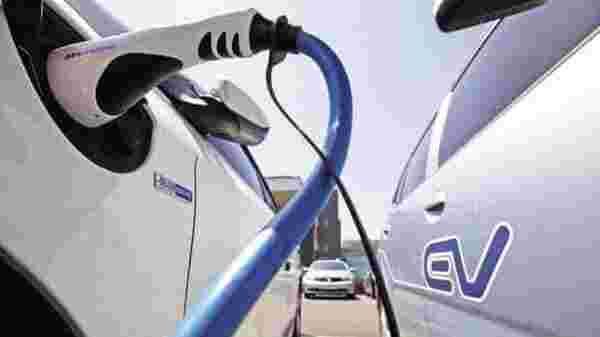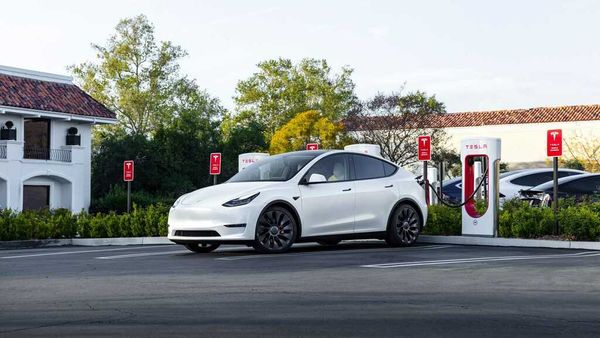High gas prices are making Americans mad — but probably not mad enough to greatly accelerate the shift away from gas-guzzling cars.
Why it matters: Transportation is the largest source of U.S. carbon emissions.
Driving the news: Regular gasoline averaged $4.26 per gallon Sunday, per AAA, down about 7 cents from a week earlier, but still roughly $1.40 higher than a year ago.
The big picture: Gas prices have spiked before, and while those jumps have changed consumers' choices at the margins, pain at the pump has never been enough to reverse the long-term growth in the popularity of pickups and SUVs.
- High gas prices have also historically been linked to only a pretty modest decrease in the number of miles people drive.
Between the lines: Even if this time is different, and this surge in gas prices does make more Americans seriously interested in insulating themselves from the next surge in gas prices, it's not so easy.
- Automakers have discontinued numerous smaller vehicles in recent years after consumers abandoned them, Axios' Nathan Bomey reports.
- And the Ukraine crisis, in addition to driving up oil prices, is also driving up battery input costs — notably nickel — for electric vehicles. Inventory is tight, too, CNBC reports.
Yes, but: There are some reasons to think this time could be different. We're in uncharted waters. The last time gasoline prices were this high, electric cars were barely a blip in the market.
- Now sales are growing fast, climbing to about 4.5% of the U.S. new car market last year, and automakers are bringing a lot of new vehicles to market.
- The new choices also feature a number of electric SUVs and pickups, which are at the heart of the U.S. consumer market.
- Automakers are also pouring more money into advertising EVs, including a bonanza of Super Bowl spots.
- Edmunds reports shopper interest on their site in battery vehicles, plug-in hybrids and traditional hybrids saw a weekly rise of 39% in the week ending March 13 and was 84% higher than in mid-February.
What we're watching: The duration of these high gasoline prices will play a big role in determining how much they change consumers' behavior.
- Oil prices — by far the biggest driver of retail fuel costs — are in an exceptionally volatile and unpredictable place.
- "It’s safe to say that persistently high gasoline prices will have a bigger effect on EV demand than fleeting increases would," University of California-Davis economist David Rapson, who studies vehicle choice and usage, tells Axios.
- "If the price changes are viewed as temporary, say if the government reduces gas taxes for a few months or consumers think oil markets will calm down within a few months, then it’s much less likely that gasoline prices will affect new vehicle sales or fuel economy," said economist Joshua Linn, a senior fellow at the nonpartisan think tank Resources For the Future.










